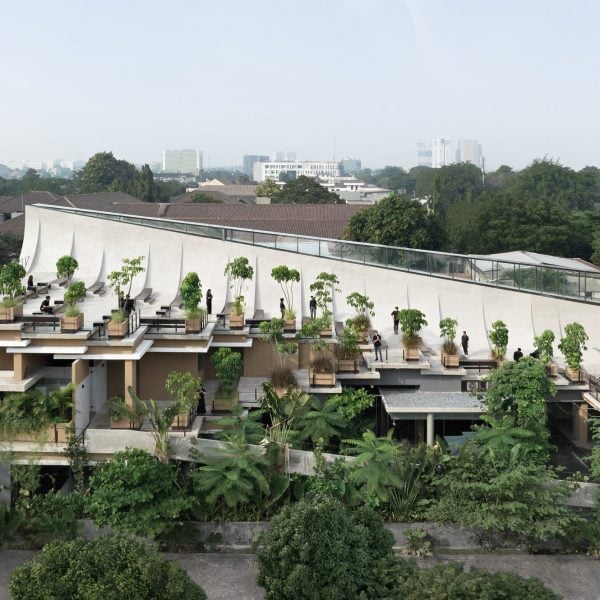A wave-like concrete terrace tops the Aruma restaurant and bar in Jakarta, which has been completed by Indonesian studio RAD+ar.
Located in Jakarta’s leafy Kemang district, the building was designed for restaurant chain Aruma to create a variety of nature-filled spaces on a relatively small site through the creation of split levels and terraces.
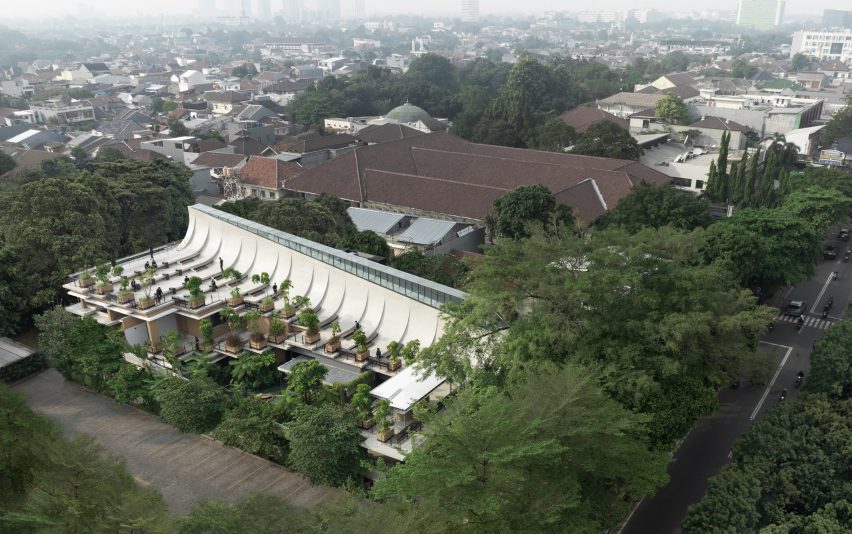
“The core concept was to explore the potential of split-level design in creating distinct zones, while integrating nature within a compact footprint,” Research Artistic Design + architecture (RAD+ar) principal Antonius Richard told Dezeen.
“The project engages with its site by blending contemporary design elements with the tropical surroundings of the commercial area.”
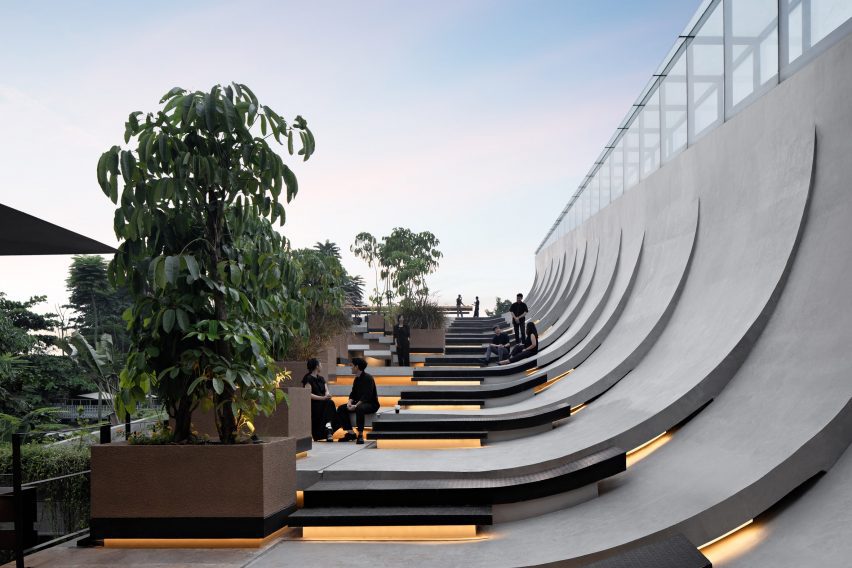
The underside of Split Garden‘s sweeping concrete roof creates a dramatic ceiling for the ground floor restaurant area, curving downwards to create more compressed spaces that open onto a large, tropical dining terrace.
A dividing wall separates the dining area from the restaurant’s kitchen and facilities, which occupy an area of the building to the south topped by a smaller, sloping roof.
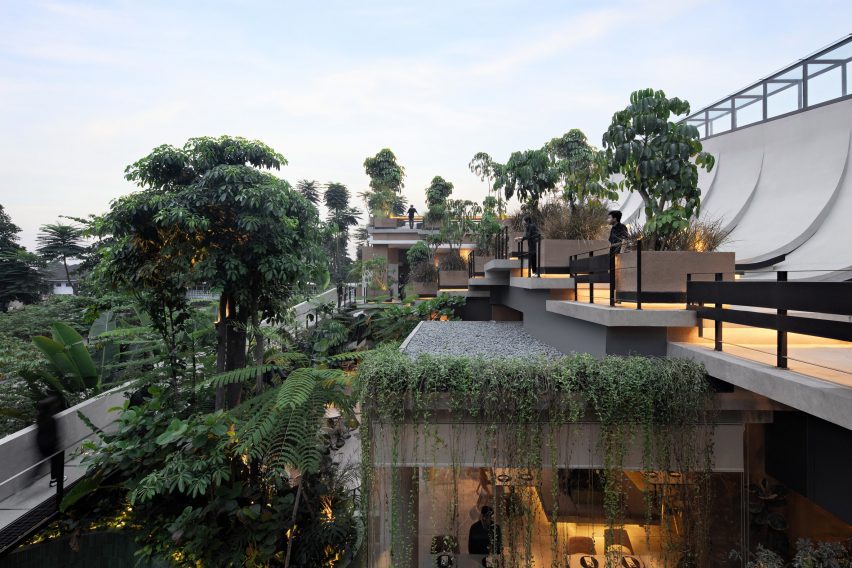
Where these curved and sloping sections of roof meet, a long, narrow skylight has been created to pull light down into the restaurant below.
A ramp at the northern edge of the site leads past the garden area to a mezzanine bar that opens out onto the roof itself, which steps further upwards to the east.
“The spatial organisation of the project includes a seamless transition from the front garden, creating a loop connection for three tenants: restaurants on the ground floor, a bar in the mezzanine space, and a beer garden extended on the split rooftop,” explained Richard.
“This multi-level layout ensures a cohesive design with different spatial experiences and characters integrated within the development,” he added.
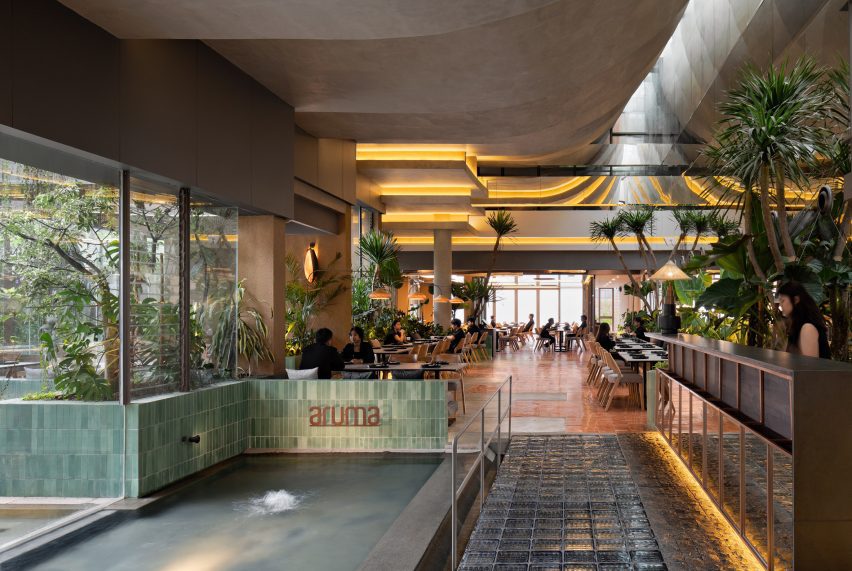
Incorporated in each of the stepped segments of Split Garden’s roof are seating areas and planters, extending out onto terraces that overlook the garden below and are sheltered by the concrete floor as it sweeps upwards to form a wall.
“The design tries to combine many elements in one gesture,” said Richard.
“The roof of the building acts as a facades, walls, diagonal cantilevered structure, circulation and furniture, all in a contemporary design that blends with the tropical surroundings of the commercial area,” he continued.
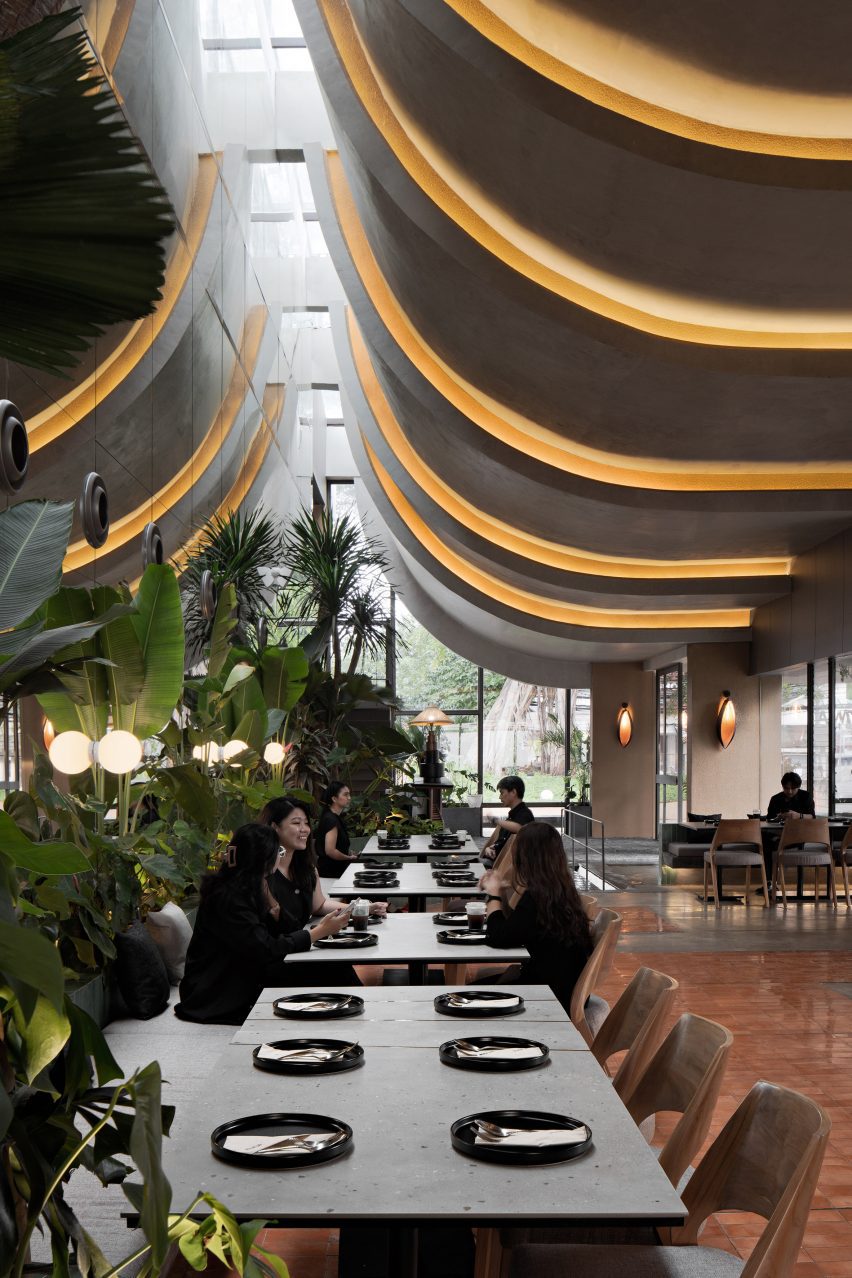
The concrete of the roof has been left exposed to emphasise its form and contrast the green planting, and both internally and externally lighting strips have been incorporated between each of its stepped segments.
RAD+ar was founded by Richard in 2017. Other projects by the studio include Frame Garden, a café also located in Jakarta that looked to reinvigorate a neglected park through the creation of a large stepped garden framed by mirrored panels.
The photography is by Mario Wibowo.

